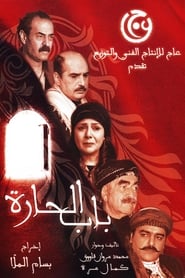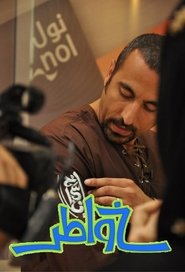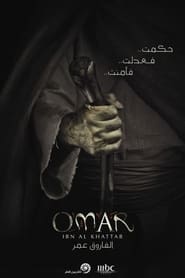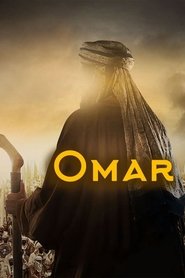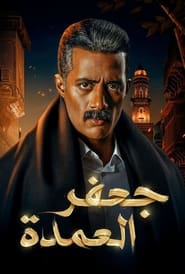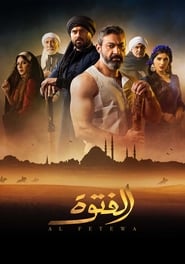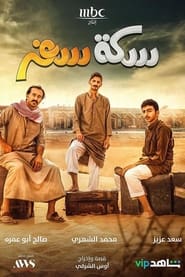Mbc 1 TV Series
-
Bab Al-Hara
2006
star 7.9A social drama set in the 1920s in Damascus. It highlights Damascene life, noble values, and ancient customs and traditions represented by the people of Harat al-Dabeh who fled to Harat al-Salihiyah after the French bombed Harat al-Dabeh. The events take place after the gold is stolen from the house of the cloth merchant Abu Ibrahim, and the guard Abu al-Samu is killed. The men of the neighborhood try to find the thief. -
Al Asouf
2018
star 2.8In the wake of the significant societal changes in the 1970s, the life of a Saudi family is turned upside down after sheltering a baby found at the mosque. -
Stiletto
2022
star 7When a corpse drops from the top floor during a grand party, officer Rami questions all witnesses to find the murderer but uncovers a past filled with betrayal. -
The Price
2023
star 6As a last resort to afford her son’s cancer treatment, a widowed mother asks her manager for money, but the latter poses one condition: she must spend the night with him. -
Omar
2012
star 7.4The life of Umar Ibn Al-Khattab, the second Caliph of Rashidun Caliphate, before and after he embraces in Islam. -
Love Game
2024
Love Game
2024
When Sama's brother falls into debt, she is forced to make an unusual deal: she must fall in love with and marry wealthy shoe designer Malek to save her family. -
Autumn of the Heart
2024
star 4.5A devastating car accident unearths a long-buried secret that turns wealthy businessman Rashid and hardworking Nahla's life around; fifteen years ago, their daughters were switched at birth. -
Ghazal's Flesh
2021
star 10In search of her missing son and escaping her turbulent past, Alia poses as a vendor living in a poor neighbourhood. -
The Best Ma Tash
2020
star 10The program shows the best episodes from the Saudi comedy series 'Tash Ma Tash', which aired on the Saudi television for 18 continuous seasons, as the show's creators Nasser Al Qasabi and Abdullah Al Sadhan discussed a set of social issues that concern the Saudi society in a cynical way. -
Hell Stone
2017
Hell Stone
2017
In this thriller TV series, three female friends decide to murder their husbands. They set a plan to blow up their car while they were out on an expedition. Their plan works, but after some inexplicable events, they realise that one of their husbands survived the explosion and has returned for revenge. -
Kalam Asfar
2018
star 2.3The series discusses the relationship of people to each other, and influenced by the words of those around them, especially with regard to the rumors that are spread. -
The Coachman
2023
star 6.5Abdo the charioteer's life becomes beset by a series of hurdles as he grapples with oppression and a fierce quest for love in old Damascus. -
Leh Laa?!
2020
star 7Amina decides to be independent, her family refused so she ran to participate in a weird competition, if she wins she'll get a scholarship and money. -
Omar
2012
star 9.2A historical work that deals with one of the most important pages in Islamic history, as it embodies the biography of the second Rightly Guided Caliph, Omar Ibn Al-Khattab, may God be pleased with him. The importance and role of his role in the history of the call and the establishment of the Islamic State lies, as well as the advantages and special virtues of that character that made him a reference and guiding model for Muslims until the present time. . A boy of brilliant intelligence, he became the greatest ruler of the world, and he did not forget at the height of his power that he represented a message carrying the highest moral values, so he provided care for the oppressed, and guaranteed justice for all, even for his enemies.. He is Al-Farouq Omar bin Al-Khattab. -
Gaafar El Omda
2023
star 6.9When rich businessman and village elder Gaafar is approached by the young Aida about a loan, he offers to give her the money on one condition: being his wife for 400 days. -
The Ruffian
2020
star 7In the world of local neighborhoods, a sect of strong people come together to manage the affairs of these neighborhoods. Known as Al-Fetewa, they are ruffians who shoulder the responsibility of the people in their neighborhoods. -
Lam'i El Ott
2017
star 4The serial revolves around a bus driver (Muhammad Imam) in a private school. As the driver returns home after school ends, a parent kidnaps the school bus and asks for a ransom. -
Sekket Safar
2022
star 10Three brothers get into many adventures when they run the inn, the station, and the grocery they inherit from their father, who appears to them as a ghost whenever they do something wrong.
